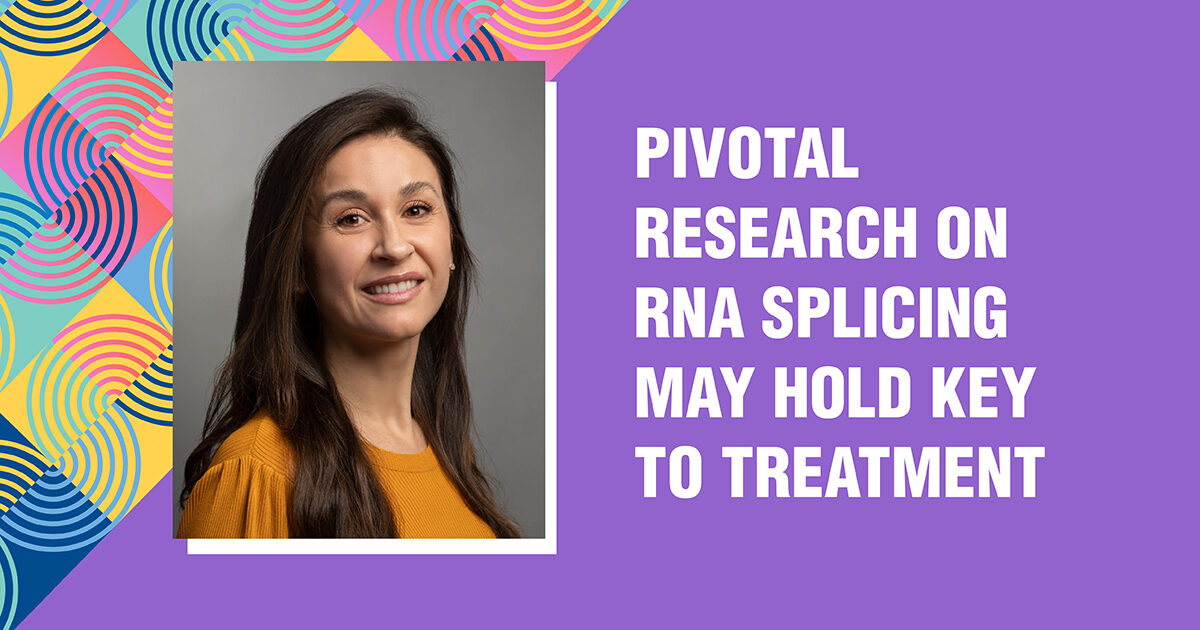As we celebrate summer and all that is blooming, we look back at seeds planted through our Seed Grant Program, and are optimistic about the progress being made in pancreatic cancer research. Our 2019 Seed Grant cohort faced a difficult year for conducting research, establishing their labs and providing updates. We are catching up with these great scientists to share their progress and advances in pancreatic cancer research.
When Luisa F Escobar-Hoyos, MSc, PhD, applied for a Seed Grant in 2019, she was a Senior Post-Doc at Memorial Sloan Kettering Cancer Center. Shortly after receiving her award, in February 2020, she became an Assistant Professor of Therapeutic Radiology and Molecular Biophysics and Biochemistry at Yale. Despite the pandemic severely impacting the establishment of her lab, she and her team continued to publish and their discoveries led to a new therapeutic modality for pancreatic cancer. Dr. Escobar-Hoyos is making great strides to cure pancreatic cancer, most notably through the discovery that pancreatic cancers are highly susceptible to a range of therapies directed at RNA splicing.
A majority of pancreatic ductal adenocarcinoma (PDAC) tumors are driven by mutations in the KRAS gene that increase the activity of KRAS driving cell growth and survival. A large subset of these tumors (70%) also have mutations in the TP53 gene but efforts to inhibit or drug these mutant proteins have largely failed. More recently, it has been shown that a specific group of mutations in TP53, called hotspot mutations, combined with high expression of genes involved in RNA splicing are markers of aggressive PDAC. RNA splicing is a process where one gene can produce many different forms of a protein and involves a number of RNA splicing proteins. Dr. Escobar-Hoyos’s recent work, published in Cancer Cell, aimed to investigate if and how mutant TP53 and RNA splicing co-operate in pancreatic tumor cells. They found that mutant p53 hijacks RNA splicing to favor the production of proteins that stimulate KRAS to promote tumor growth and metastasis. Based on these findings, Dr. Escobar-Hoyos’s lab developed and patented a new therapy for pancreatic cancers that harbor mutant KRAS and mutant p53, which corrects the RNA splicing errors, selectively killing pancreatic cancer cells in animal models.
This remarkable discovery, that oncogenic KRAS is susceptible to inactivation through the inhibition of RNA splicing, led Dr. Escobar-Hoyos to submit a patent for this type of therapy. The patent relates to a method for treatment administering an anti-sense oligonucleotides (a small piece of modified RNA) that block the splicing of cancer-related genes, thereby treating the cancer. This novel therapy, Splicing-Hit Oligonucleotide Therapy (SHOT), is currently being tested in Dr. Escobar-Hoyos’s lab. As pancreatic tumors often don’t respond to treatment, the hope that SHOT will be effective in tumors that are resistant to current therapies. Dr. Escobar-Hoyos is currently working with the Yale Cancer Center on a clinical trial to test this novel form of therapy for pancreatic cancers.
We applaud the work of Dr. Escobar-Hoyos and her lab and are hopeful that her discovery helps pave the way to a cure. As Dr. Escobar-Hoyos writes, “thank you for your support and I hope that [the Foundation] funds other pancreatic cancer scientists!” We are honored to fund Seed Grants and, thanks to your support, look forward to continuing our progress.


